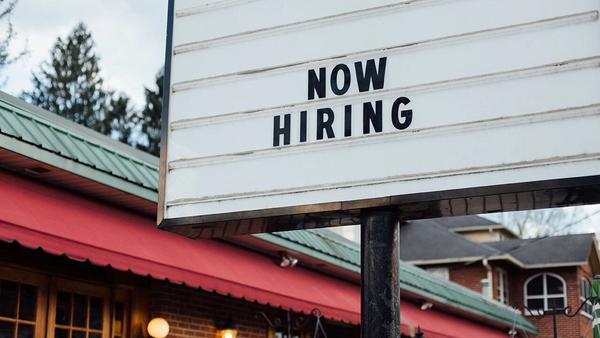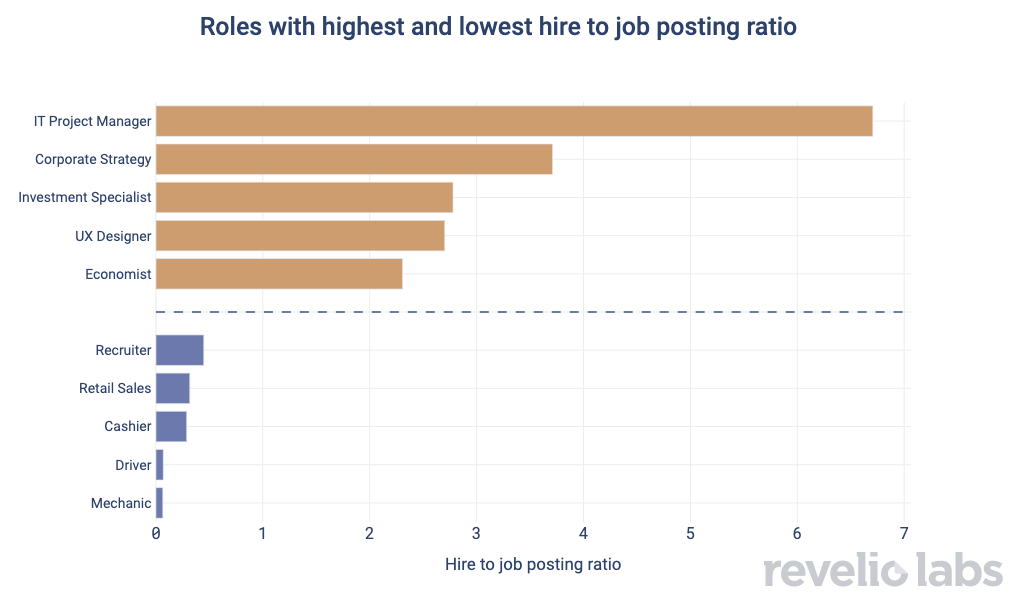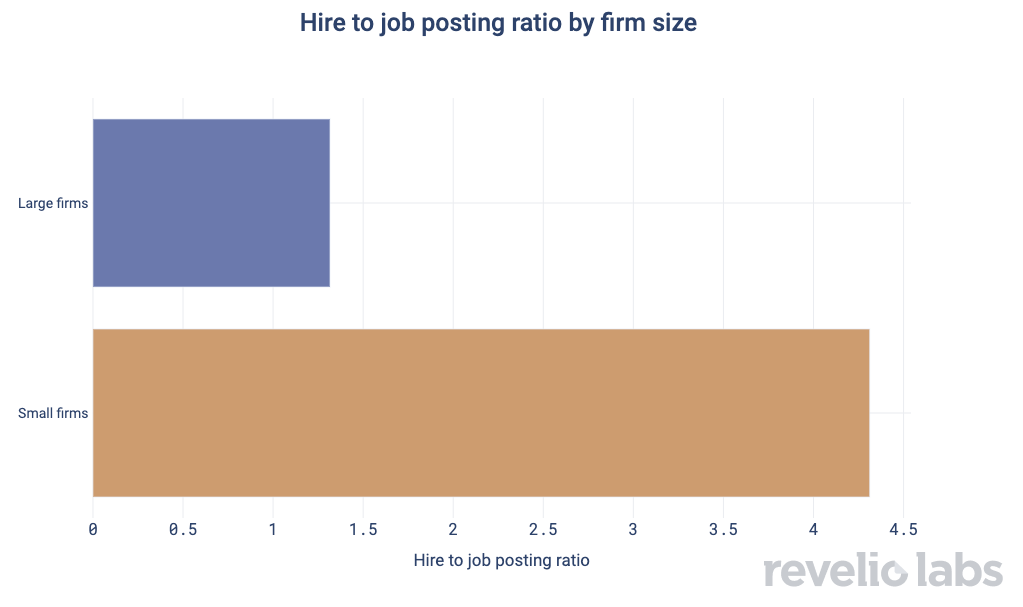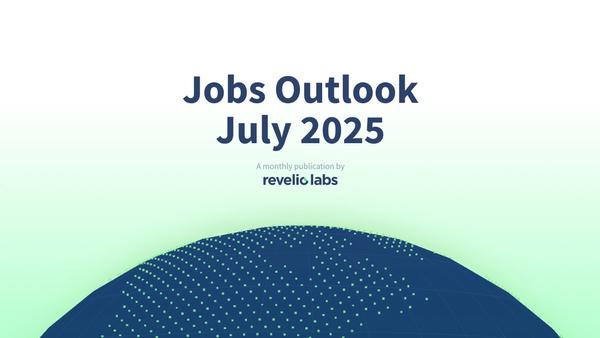When Job Postings Don’t Mean Hires
What do job postings represent?

Job postings are often used to measure demand in the economy. But does one job posting really represent one vacancy? And does a removed posting really represent a hire? Or, alternatively, are there roles where there is no posting but still a new hire? Or are there roles with postings but no talent to fill those roles? In short, what is the relationship of job postings to hires?
By comparing job postings with new hires for the second half of 2021, Revelio Labs can see which roles have the biggest discrepancies between new hires and job openings. Below is their “hire to job posting” ratio:


The graph suggests that for every IT Project Manager job posting, close to seven new positions are actually filled. These jobs are relatively rare to be posted online and individuals need to rely on word-of-mouth or connections to secure them. The bottom part of the graph, however, are the roles in which job postings far exceed observed new hires. The occupations in that list remind us of two phenomena in the jobs market: (i) the recent astronomic demand for recruiters (that we wrote about here); and (ii) the low hires to vacancy ratios for drivers, mechanics, and cashiers, which are an indication of labor shortages for these roles.
Sign up for our newsletter
Our weekly data driven newsletter provides in-depth analysis of workforce trends and news, delivered straight to your inbox!
While one may be tempted to think that this is a question of company size – in the sense that larger companies post one job, but actually hire many new workers for a role – we find that the opposite is true.


Larger companies’ “hire to job posting” ratio is closer to 1, while it is much higher for smaller companies. Arguably, this is related to the fact that larger firms need to plan ahead and maybe have more rigid budgets, while smaller firms may be more flexible in their workforce planning process.
Key Takeaways:
- Certain jobs are less frequently posted online compared to the number of new hires. These positions are filled through word of mouth or through multiple hires for one posting.
- The roles in which job postings far exceed new hires in the jobs market seem to be those for which demand is particularly high (like recruiters) or supply is particularly low (like drivers and cashiers).
- In larger firms, the “hire to job posting” ratio is close to 1, while it is much higher in smaller firms, indicating a difference in workforce planning process.
If you have any ideas of other metrics to track or would like to hear more about Revelio Labs, please feel free to reach out.


